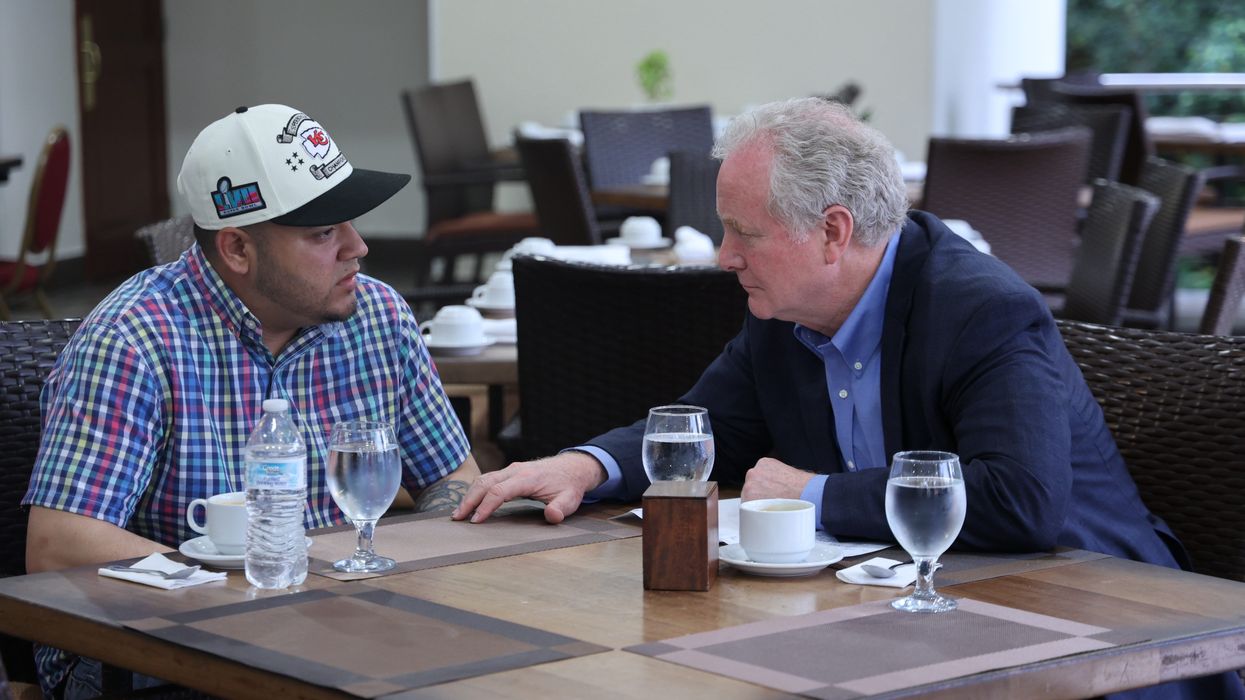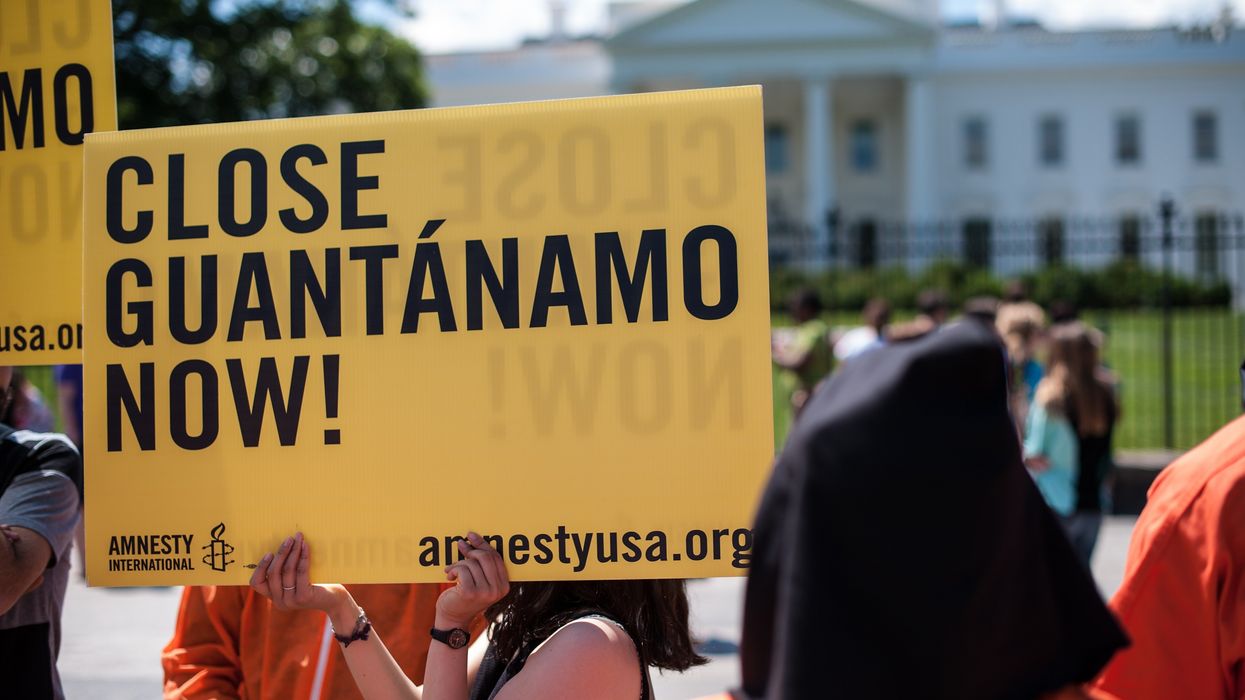“Every week I went, and every week I left crying,” the mother of a 24-year-old domestic worker told us, about her visits to government offices to seek information. Her daughter was detained in April 2022, as she slept beside her 4-year-old daughter. Officers entered their home without a warrant, citing “presidential orders.” They took her first to a police station and then to the women’s prison.
When Van Hollen met with Abrego García, he came face-to-face with the harsh reality that tens of thousands of Salvadoran families have endured for months—even years.
She was later charged with “unlawful association,” a vague offense frequently used to hold people detained in El Salvador. When her mother attempted to submit documents to show her daughter was not a gang member, including employment papers, a public defender told her they were “useless.” The public defender did not give her any answers, alleging, as she recalls, that “sharing information with families of detainees is prohibited.”
The mother has been forced to piece together information from multiple sources, including calls from people who said they had been detained with her daughter, and rumors in WhatsApp and Facebook groups created by relatives of people detained. She learned, for example, in September 2023, that her daughter had a hernia, causing her to vomit frequently. Sixteen months later, she learned that her daughter had been hospitalized briefly, for a medical checkup. She does not know what her health status is.
The relatives of a 61-year-old civil engineer, who was detained in June 2022, told us a similar story. He has multiple serious health conditions—including diabetes, glaucoma, neuropathy, hypertension, and other chronic illnesses. Yet his family does not know if he is receiving the medical attention he needs, including daily refrigerated insulin—something detainees in El Salvador rarely obtain.
He was detained at a police unit in San Salvador, then transferred in September 2023 to a prison. Since then, his family has only been able to see him once, very briefly, in June 2024. They saw him then from afar, handcuffed and escorted into a courtroom, where he appeared visibly weakened.
His lawyer has asked repeatedly that he be sent to house arrest to receive adequate medical treatment, to no avail.
This regime of extreme incommunicado detention has also allowed corruption to thrive. As the investigative news outlet El Faro recently exposed, many relatives have paid bribes to be able to exercise a basic right: to communicate with their detained loved ones.
Yet many, often from vulnerable neighborhoods in El Salvador, are unable to pay. Many told us that the most they can do is take a bag with basic items, such as food, medicine, and clothes, to prison. They spend a significant amount of their income and time to do so, often fearing that their relatives will never receive the goods.
Thanks to outside pressure, Abrego García was not only able to speak to a U.S. senator but also to be transferred out of the draconian Center for Confinement of Terrorism (CECOT), where thousands of the detainees are being held.
These positive steps are clearly insufficient: Abrego García should be sent back to the United States. But the basic rights Abrego has been denied in El Salvador—including to communicate with his family—are a stark reminder of the plight of thousands of Salvadorans who have seen their loved ones completely cut off from the outside world for months or even years.
When Van Hollen met with Abrego García, he came face-to-face with the harsh reality that tens of thousands of Salvadoran families have endured for months—even years. A prison system cut off from the rest of the world where the lives of detainees remain in limbo and families are left in anguish, endlessly searching for answers.
“I wish I could be a bird and fly into the prison just to see how my daughter is,” one of their relatives said.




